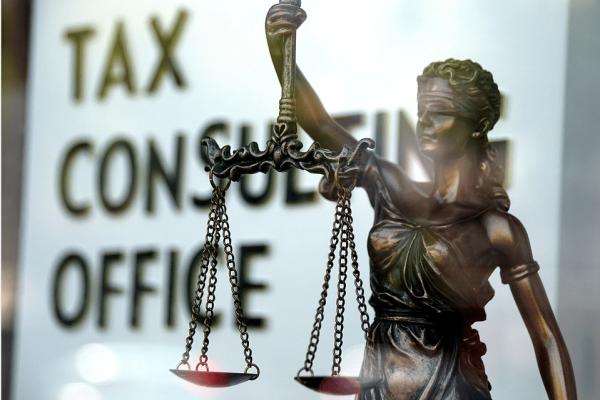

Finance
When Is Late Payment Reported To Credit Bureau
Published: March 3, 2024
Learn about the impact of late payments on your credit report and how they affect your financial standing. Find out when late payments are reported to credit bureaus. Gain insights on managing your finances effectively.
(Many of the links in this article redirect to a specific reviewed product. Your purchase of these products through affiliate links helps to generate commission for LiveWell, at no extra cost. Learn more)
Table of Contents
**
Introduction
**
Late payments on credit accounts can have a significant impact on an individual's credit score and financial well-being. Understanding when these late payments are reported to credit bureaus and the potential consequences is crucial for anyone looking to maintain a healthy credit profile. In this article, we will delve into the intricacies of late payments, their effects on credit scores, and the timing of their reporting to credit bureaus. By gaining a comprehensive understanding of these factors, individuals can take proactive steps to mitigate the negative repercussions of late payments on their credit reports.
Late payments can occur for various reasons, ranging from financial hardships to simple oversights. Regardless of the cause, they can lead to a cascade of adverse effects on an individual's creditworthiness. This article aims to shed light on the timing and implications of late payment reporting, empowering readers with the knowledge needed to navigate the complexities of credit management.
Understanding the nuances of late payments and their reporting timeline is essential for individuals striving to maintain a favorable credit standing. By exploring the intricacies of this topic, readers will gain valuable insights into the potential repercussions of late payments on their credit reports, enabling them to make informed decisions and take proactive measures to safeguard their financial health.
**
Understanding Late Payments
Late payments occur when an individual fails to make the minimum required payment on a credit account by the due date. These late payments can apply to various types of credit obligations, including credit cards, loans, mortgages, and other financial commitments. It is essential to comprehend the implications of late payments, as they can have far-reaching consequences on an individual’s financial well-being.
When a payment is not made on time, creditors typically impose late fees, increasing the financial burden on the individual. Moreover, late payments can trigger a series of negative effects, such as a decrease in credit score, higher interest rates on existing accounts, and potential obstacles in securing future credit. Understanding the factors contributing to late payments, including financial constraints, disorganization, or oversight, is crucial for individuals seeking to address and rectify these issues.
Furthermore, comprehending the impact of late payments on credit reports is essential. Late payments can remain on credit reports for up to seven years, tarnishing an individual’s credit history and diminishing their creditworthiness. This can hinder their ability to obtain favorable loan terms, secure new lines of credit, or even affect employment opportunities, as some employers review credit reports as part of the hiring process.
By gaining a thorough understanding of late payments and their implications, individuals can take proactive measures to prevent and address them. This includes implementing financial management strategies, setting up payment reminders, and exploring options for renegotiating payment terms with creditors. Additionally, seeking professional financial counseling or debt management assistance can provide valuable support in addressing the root causes of late payments and establishing a more secure financial footing.
**
How Late Payments Affect Credit Scores
Late payments wield a substantial influence on an individual’s credit scores, which are pivotal in determining their creditworthiness. Credit scoring models, such as FICO and VantageScore, consider payment history as a significant factor in calculating credit scores. As a result, late payments can significantly diminish an individual’s credit score, making it imperative to comprehend the mechanisms through which this occurs.
When a payment is overdue, creditors may report the delinquency to the credit bureaus. This information is then reflected in the individual’s credit report, signaling to potential lenders and creditors that the individual has not met their financial obligations in a timely manner. As a result, credit scores may experience a notable decline, impacting the individual’s ability to access favorable credit terms and financial opportunities.
Moreover, the impact of late payments on credit scores can be particularly severe for individuals with previously pristine credit histories. A single late payment can cause a significant drop in their credit score, potentially affecting their eligibility for competitive interest rates and favorable loan terms. This underscores the critical importance of maintaining a consistent record of on-time payments to preserve and enhance one’s credit score.
Understanding the correlation between late payments and credit scores is essential for individuals seeking to safeguard their financial standing. By recognizing the detrimental effects of late payments on credit scores, individuals can prioritize timely payments and adopt proactive measures to prevent delinquencies. This may involve setting up automatic payments, leveraging payment reminders, and establishing a comprehensive budget to ensure that financial obligations are met punctually.
**
When Late Payments Are Reported to Credit Bureaus
The timing of when late payments are reported to credit bureaus is a crucial aspect of credit management, as it directly impacts an individual’s credit standing. Generally, late payments are reported to the credit bureaus after a certain grace period following the due date. This grace period can vary among creditors and may also be influenced by regulatory requirements and contractual agreements.
For most credit accounts, late payments are not immediately reported to the credit bureaus. Instead, creditors typically allow a window of approximately 30 days after the due date before reporting the delinquency. This grace period offers individuals an opportunity to rectify the late payment and bring the account up to date before it is officially documented on their credit report.
It is important to note that while the grace period provides a temporary reprieve, the impact of a late payment on an individual’s credit score may still be felt even before it is reported to the credit bureaus. Creditors may levy late fees and interest charges, and the delinquency can be factored into internal risk assessments, potentially affecting the individual’s standing with the creditor.
Once a late payment is reported to the credit bureaus, it becomes a permanent fixture on the individual’s credit report for a specified duration, typically up to seven years. During this time, the late payment can exert a lingering negative influence on the individual’s credit score and overall creditworthiness, potentially impeding their access to favorable credit terms and financial opportunities.
Understanding the reporting timeline for late payments is essential for individuals aiming to mitigate the impact on their credit reports. By recognizing the window of opportunity between the due date and the reporting of late payments, individuals can take proactive measures to address delinquencies, negotiate payment arrangements with creditors, and minimize the long-term repercussions on their credit profiles.
**
Consequences of Late Payments Being Reported
When late payments are reported to credit bureaus, they can precipitate a cascade of adverse consequences that significantly impact an individual’s financial standing. These repercussions extend beyond the immediate financial penalties and encompass enduring effects on credit scores, loan eligibility, and overall creditworthiness.
One of the primary ramifications of late payments being reported is the negative impact on an individual’s credit score. Credit scoring models consider payment history as a pivotal factor, and the presence of late payments on a credit report can lead to a substantial decline in credit scores. This can impede the individual’s ability to secure favorable interest rates, access new lines of credit, and may even affect their housing and employment prospects.
Furthermore, the reporting of late payments can trigger heightened interest rates on existing credit accounts, amplifying the financial burden on the individual. Lenders and creditors may perceive individuals with a history of late payments as higher-risk borrowers, leading to less favorable terms and increased costs associated with borrowing.
Additionally, the presence of late payments on a credit report can undermine an individual’s eligibility for new credit opportunities. Lenders and financial institutions are inclined to scrutinize credit reports when evaluating loan applications, and the existence of delinquent payment records can diminish the individual’s chances of securing new credit or obtaining favorable loan terms.
Moreover, the repercussions of late payments being reported can extend to non-financial domains, potentially impacting an individual’s housing and employment prospects. Landlords and employers may review credit reports as part of their assessment process, and the presence of late payments can influence their decisions, affecting the individual’s ability to secure rental accommodations or gain employment in certain roles.
Recognizing the far-reaching consequences of late payments being reported to credit bureaus underscores the critical importance of proactive credit management. By understanding these implications, individuals can prioritize timely payments, seek assistance in addressing financial challenges, and take measures to mitigate the long-term effects of late payments on their credit profiles.
**
How to Minimize the Impact of Late Payments on Credit Reports
Despite the potential repercussions of late payments on credit reports, individuals can take proactive steps to mitigate their impact and safeguard their creditworthiness. By implementing strategic measures and adopting responsible financial practices, individuals can navigate the challenges posed by late payments and work towards restoring a positive credit standing.
One effective strategy to minimize the impact of late payments is to establish a system for timely payment management. This can involve setting up automatic payments for recurring bills and obligations, ensuring that payments are consistently made on or before the due date. Additionally, leveraging payment reminders through mobile apps or calendar alerts can serve as valuable tools in preventing oversights and ensuring punctual payments.
For individuals facing financial constraints or temporary hardships that may lead to late payments, proactive communication with creditors is essential. Initiating a dialogue with creditors to discuss payment challenges and exploring options for renegotiating payment terms or setting up alternative arrangements can help alleviate the immediate burden and prevent the reporting of delinquencies to credit bureaus.
Seeking professional financial counseling and guidance can provide individuals with invaluable support in addressing the root causes of late payments and devising comprehensive strategies for financial management. Financial counselors can offer personalized advice, debt management solutions, and budgeting techniques to help individuals regain control of their finances and prevent future late payments.
Regularly monitoring credit reports is another crucial aspect of minimizing the impact of late payments. By staying informed about the contents of their credit reports, individuals can promptly identify any inaccuracies, address reporting errors, and track their progress in rectifying late payments and improving their credit standing.
Furthermore, cultivating responsible financial habits, such as maintaining a manageable level of debt, utilizing credit responsibly, and refraining from overextending financially, can contribute to a more resilient credit profile. By demonstrating consistent and prudent financial behavior, individuals can gradually mitigate the impact of past late payments and enhance their creditworthiness over time.
By embracing these proactive strategies and responsible financial practices, individuals can navigate the challenges associated with late payments and work towards restoring and preserving a positive credit standing. Empowered with knowledge and equipped with effective tools, individuals can mitigate the impact of late payments on their credit reports and pave the way for a more secure financial future.














